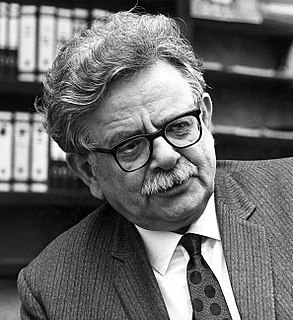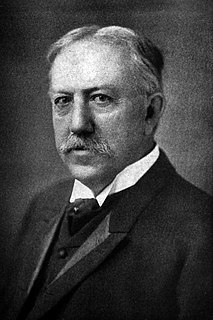A Quote by John Ruskin
All things are literally better, lovelier, and more beloved for the imperfections which have been divinely appointed, that the law of human life may be effort, and the law of human judgment, mercy.
Related Quotes
No human face is exactly the same in its lines on each side, no leaf perfect in its lobes, no branch in its symmetry. All admit irregularity as they imply change; and to banish imperfection is to destroy expression, to check exertion, to paralyze vitality. All things are literally better, lovelier, and more beloved for the imperfections which have been divinely appointed, that the law of human life may be Effort, and the law of human judgment, Mercy.
He who flies from his master is a runaway; but the law is master, and he who breaks the law is a runaway. And he also who is grieved or angry or afraid, is dissatisfied because something has been or is or shall be of the things which are appointed by Him who rules all things, and He is Law, and assigns to every man what is fit. He then who fears or is grieved or is angry is a runaway.
Aging is a staircase - the upward ascension of the human spirit, bringing us into wisdom, wholeness and authenticity. As you may know, the entire world operates on a universal law: entropy, the second law of thermodynamics. Entropy means that everything in the world, everything, is in a state of decline and decay, the arch. There's only one exception to this universal law, and that is the human spirit, which can continue to evolve upwards.
Justice begins with the recognition of the necessity of sharing. The oldest law is that which regulates it, and this is still themost important law today and, as such, has remained the basic concern of all movements which have at heart the community of human activities and of human existence in general.
The physiological law of Transfer of Energy is the basis of human success and happiness. There is no action without expenditure of energy, and if energy be not expended the power to generate it is lost. This law shows itself in a thousand ways in the life of man. The arm which is not used becomes palsied. The wealth which comes by chance weakens and destroys. The good which is unused turns to evil. The charity which asks no effort cannot relieve the misery she creates.
The law is only one of several imperfect and more or less external ways of defending what is better in life against what is worse. By itself, the law can never create anything better. Establishing respect for the law does not automatically ensure a better life for that, after all, is a job for people and not for laws and institutions.
The doctrines thus delivered we call the revealed or divine law, and they are to be found only in the holy scriptures.. are found upon comparison to be really part of the original law of nature. Upon these two foundations, the law of nature and the law of revelation, depend all human laws; that is to say, no human laws should be suffered to contradict these.
In war, in some sense, lies the very genius of law. It is law creative and active; it is the first principle of the law. What is human warfare but just this, - an effort to make the laws of God and nature take sides with one party. Men make an arbitrary code, and, because it is not right, they try to make it prevail by might. The moral law does not want any champion. Its asserters do not go to war. It was never infringed with impunity. It is inconsistent to decry war and maintain law, for if there were no need of war there would be no need of law.
Canon law pertains to Catholics. Jewish law pertains only to Jews. But the sharia dictates every basic aspect of human life, asserts its authority over non-Muslims, unlike Jewish law and unlike canon law, which is why they're slaughtering Christians, they're slaughtering secular Muslims across the Muslim world.
The Three Laws of Robotics: 1: A robot may not injure a human being or, through inaction, allow a human being to come to harm; 2: A robot must obey the orders given it by human beings except where such orders would conflict with the First Law; 3: A robot must protect its own existence as long as such protection does not conflict with the First or Second Law; The Zeroth Law: A robot may not harm humanity, or, by inaction, allow humanity to come to harm.





































